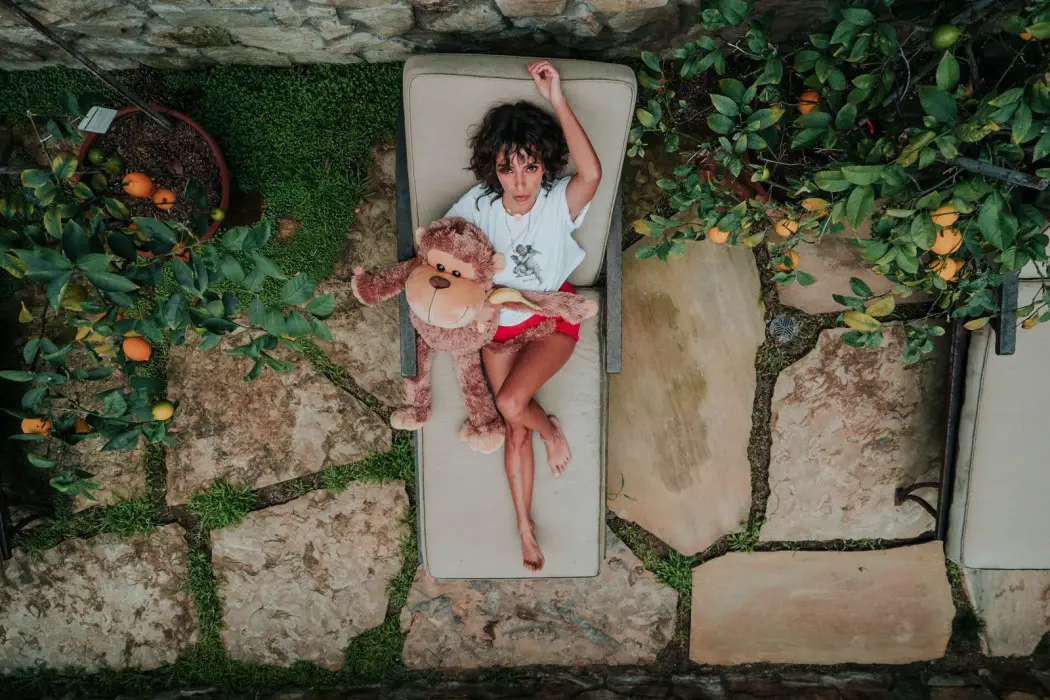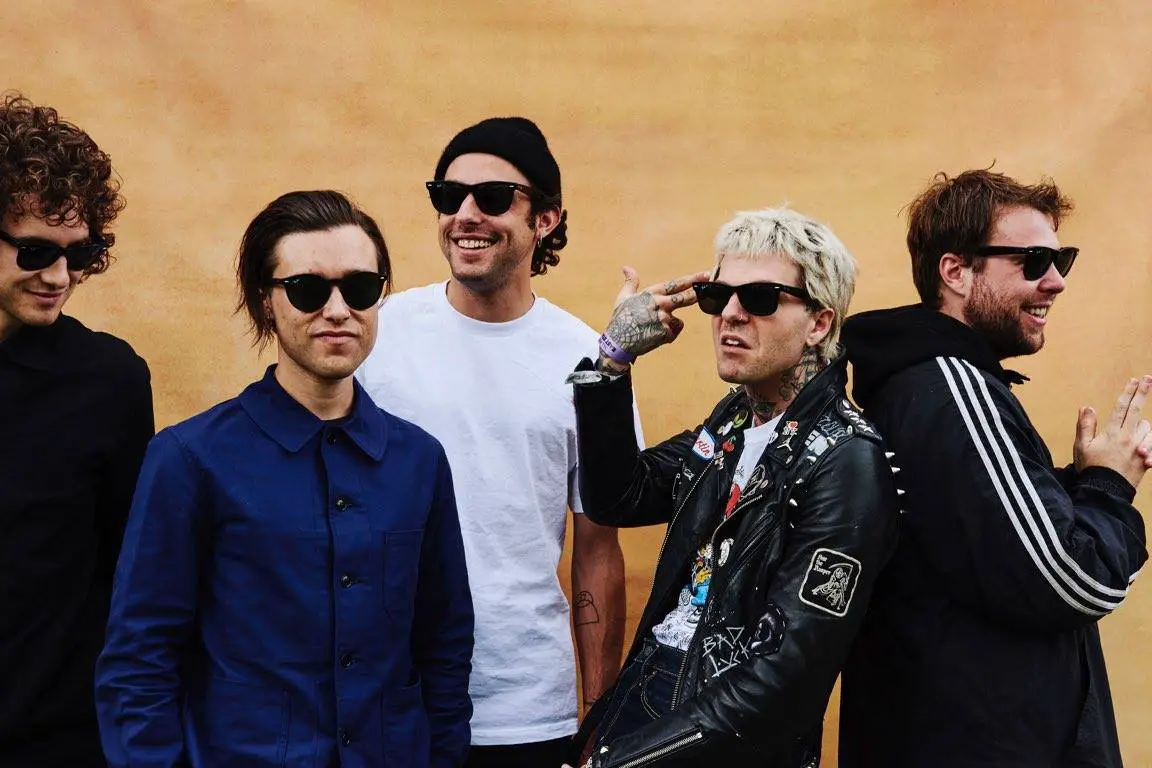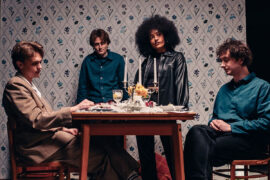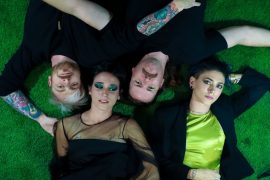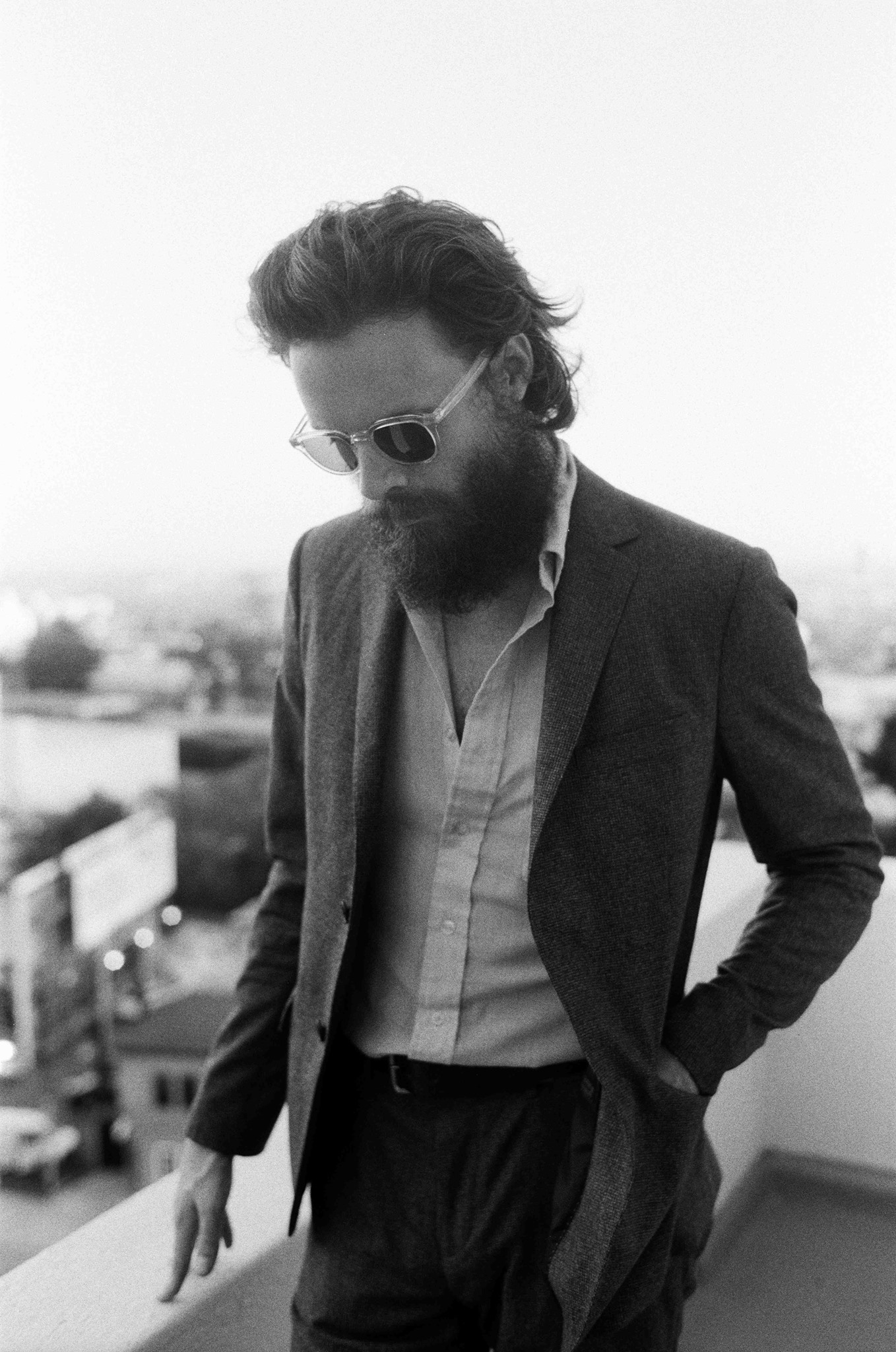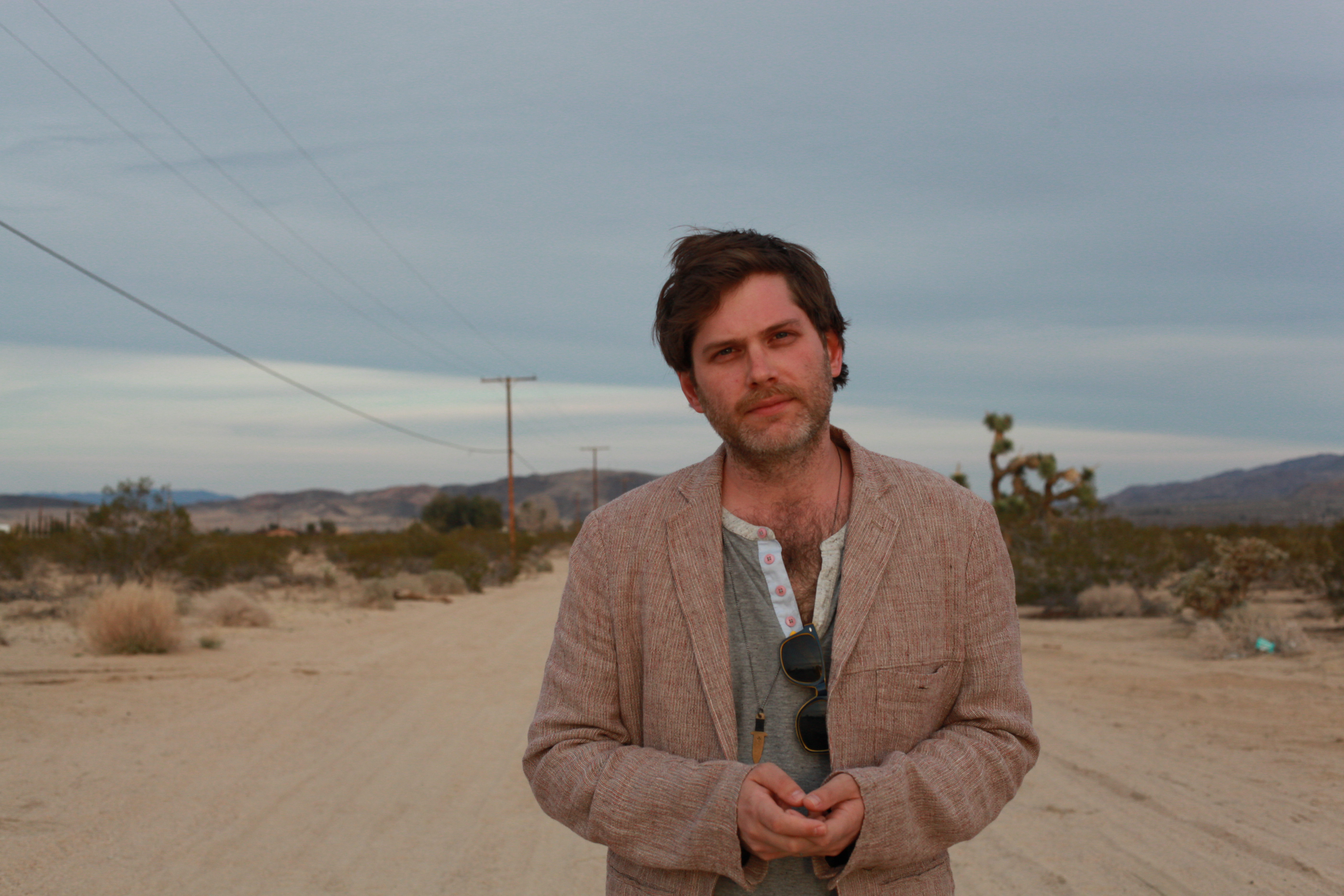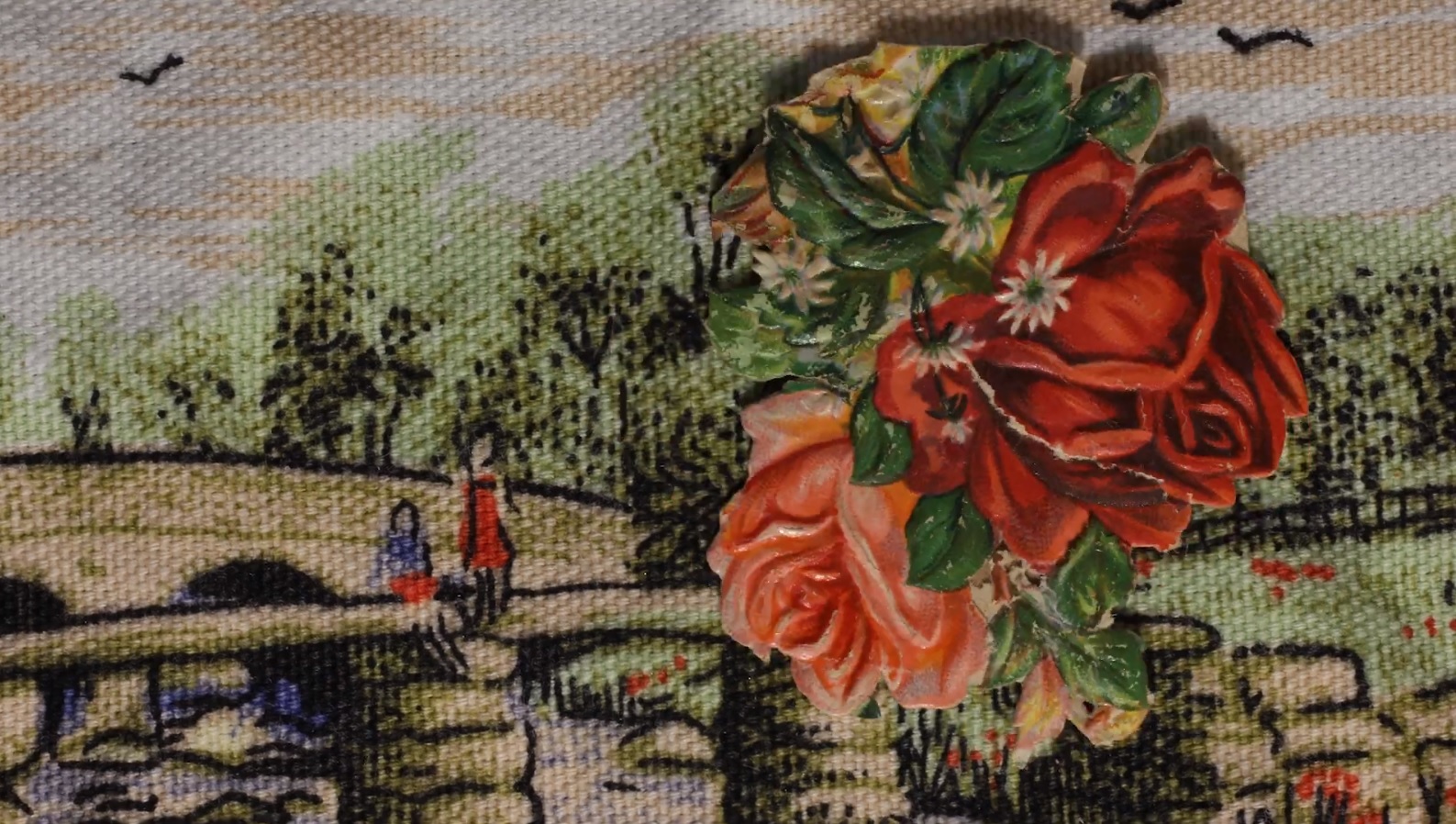Saudi Arabian artist Rotana is not here to listen to the world’s opinions of her. She has found herself and her voice, and is now unashamedly provoking change in the world.
— —
“I was living this life that I thought I wanted, then I got really depressed and realised that I had no idea what I believed in, that I was living this life blindly following the system that didn’t actually resonate with me” says Saudi Arabian artist Rotana, discussing the sequence of events that eventually led her to abandon her old life and pursue music full-time. After receiving an important promotion at a very young age in a Saudi Arabian company, Rotana felt lost, and decided to pack her things and move to America to pursue a master’s degree while also working on her music, a craft she’d been developing for years.
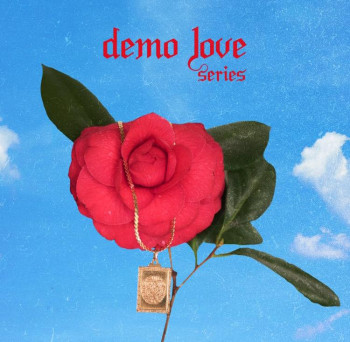
Now living in Los Angeles, Rotana has become a powerful pop songstress. On pulsating debut single “Daddy” she confronts oppressors and reclaims her power as a woman, as a person with lyrics like “You started a war/ Now you won’t fight/ Now I’ve got my armour on/ Can you take it?”. “The Cure” and “Over You”, released after “Daddy” follow the same theme of power, and make up a cinematic trifecta of songs that depict an artist discovering the impact of her voice and the importance of standing up for your beliefs.
On the demo love series, the EP Rotana is releasing independently today, she steers in a different direction. Now taking inspiration from her firsthand experiences with love and heartbreak, Rotana takes us in a more subdued direction, presenting us with demos instead of finished versions of songs and inviting us into her creative process. The videos which accompany each song were meticulously designed by the artist, who inserted important symbols of her everyday life on every visual.
Rotana spoke with Atwood Magazine about her incredibly inspiring personal and musical journey, and candidly describes what her thoughts, experiences, and ambitions as an artist and as a person. On the day we spoke, Rotana was putting on a special performance piece in Los Angeles, where she transformed a Morroccan rug shop into a music venue, and further invited guests into her mind as she intertwined live music with spoken word and without any doubt touched every person in the room. Rotana is not here to listen to everyone’s opinions of her, she’s found herself and her voice, and is now unashamedly using both to make a change in the world. She’s the culmination of the kind of artist the world is looking for right now, and her star will certainly only shine brighter and brighter as the years go by.
Listen: demo love series – Rotana
A CONVERSATION WITH ROTANA
Atwood Magazine: You found your place in music while studying for your masters, what was the moment in which you realized you wanted to drop everything to devote yourself to music?
Rotana: I don’t think there was one moment, and I’ve been singing and writing my whole life but in a very private sphere because growing up in Saudi Arabia, it was forbidden for a woman to do that. I’ve always known that I wanted to do music, I just literally never thought it was possible. I was reaching a bad depression, and when that came about I decided to take some time off work and I went to India for three months alone, and I was in this yoga retreat and it was just me and four other people. I was there for three months and it was just silence and me in my head. When I quieted the noise outside me, my gut was just like “Yo, what do you really think? You want to go and do this, just go” so that’s why I went to the States to get my masters, I knew it was a vehicle to legally get here (laughs).
When did you realize you were breaking the mould and taking control of your own destiny instead of conforming to being who the world told you to be?
Rotana: It’s been a process. I feel like a lot of times people want these incredible, sensationalised moments, but it’s not there. It’s just been a process of listening to myself. I would say that like, I made this video to protest the ban on women’s driving three or four years ago, and that went viral. I was so young. I knew that I was breaking the mould because there aren’t any Saudi artists who are really pursuing the pop music industry the way that I am, so I knew that, but I think that breaking the mould… Anyone that’s listening to themselves is breaking the mould. There hasn’t been a single moment. I feel like I’ve been breaking the mould here in the States as well by really pushing back against a lot of media outlets that are always trying to focus on the oppression of my story, the tension of it all, and really not allowing me to have a human voice, to talk about things that matter to me, you know, I’m just a regular girl. Even that, to me, is a form of breaking the mould, saying that I’m not just this sensationalised stereotype that the people want me to be. Most people want the dramatic Saudi story of it all, but there’s also a human here, and I think that’s something that applies to all minority groups – something that all minority groups suffer from. We’re constantly coerced to talk about the trauma, the oppression, so I think even that is breaking the mould in and of itself.
I want to talk about the videos that accompany each of your songs on the Love Demo series - first of all, how did The Simpsons inspire you?
Rotana: Yeah! (laughs) I mean, I just love The Simpsons, I’m a stoner at heart and I’ve always loved that show. As a kid I always saw my brother as Bart. And I think Lisa is so smart, I mean she is, they make her so smart in the show, she’s always 10 steps ahead of everyone else but she’s chill, she doesn’t scream and shout for her opinion to be heard, but then she just does one thing and it’ll be like an atomic bomb. So I thinks she’s amazing in that sense. But also, I have to give credit to this kid, he’s this South American kid his name is NEOTIC, and he makes these remixes with this lo-fi hip hop music, and he uses The Simpsons a lot. The whole demo love series visual landscape was inspired by him.
Watch: “loud love (demo) – Rotana
https://www.youtube.com/watch?v=UnhZC1FWCfE
Talk me through the process of choosing what was going to be on set for the videos, it seems like every single thing you see on screen is purposeful and holds some symbolism to it.
Rotana: Amazing, yeah, thanks for asking! The locket is scripture from the holy book, the Quran, which is our holy book. I wear it every day of my life, it was my grandmother’s, then my mother’s, and now my mother gave it to me. I wear this scripture because I really want to remind myself – I get critiqued and criticised saying I’m too sexy, disgusting, and shameful and stuff like that – but I really believe that when your sexuality is coming from a pure place, you can be sexual and holy at the same time. You can be sexual and Godly. You can respect and be in your body. I wear that as a reminder that I can still be at home and be myself in ways that feel so far away from home. So that’s why the locket is there, and it’s the forefront of this. That’s what The demo love series is all about for me too, the notion of freedom. The notion of being able to tell your story and how you feel, like I told you, I often times feel like I’m coerced to be this angry, angsty, anxious person, and The demo love series was like “I’m just a girl who fell in love and had her heart broken, and here’s five love songs and fuck you I want to talk about love and nothing but that for a moment” (laughs). So that’s that. That’s the feeling, that’s the locket. The candles are love and lush candles, which is my focus for this year, I’m just relentlessly pursuing self-love and money (laughs). Because the last two years have been just me pouring my money into my art, and now I’m at a place where I really and convicted and understand that this is worth monetary value, I’ve done so much work on myself and my art. That’s the symbolism behind that. There’s a poster of Charlie Chaplin in some of the visuals, and Charlie Chaplin is someone who again, as a kid and as a teenager, I escaped in Charlie Chaplin songs. He felt like freedom to me, he felt like someone who was just doing what he wanted to do and he had no influence. I never even bothered to go into his life story because that’s what I want to believe, it just feels to me that he just woke up and went in to be filmed, there was no one influencing him. I found this poster of him in Arabic. There are a lot of milky way, galaxy visuals that I post because I do acid very responsibly. I try to do it once every 6 months, it’s been a big part of me restructuring my belief system and opening doors in my mind that are really tightly shut because of how strongly I’m conditioned. So that milky way is the symbolism of where I go when I take acid, this place with no boundaries and no limits, a different planet that I really resonate with. And I’m not an advocate for drugs, it works for me, I do it responsibly. That’s what works for me, but I saw someone who did a shit ton of acid, he did it almost every day for a year which is so intense, but a lot of artists resonate with that experience. There’s nothing in that chemical that our brain doesn’t naturally produce. Anyway, that’s where all the milky ways come from.
Watch: bad weather (demo) – Rotana
https://www.youtube.com/watch?v=nAULBxRyrHg
All these songs you’re releasing as demos, do you intend in working them into their final versions and releasing them, or will they live as demos forever?
Rotana: I mean for these songs I think they’re just going to be demos forever. There are so many songs. Right now I’m working on the EP and really getting the music and the sonic world right, because there are so many influences from back home that I want to integrate. Those songs were just a moment of freedom, and I also wanted to share my process with my fans and encourage younger artists, especially those from the middle east, to put out their art. And really everywhere, not only the Middle East, put out your art, don’t get so caught up and obsessed with putting out a perfectly finished project. Just push it out. I really realised that about myself, I was like “What the fuck am I doing?” take the pressure off, I just wanted to show process. So that’s what the demo love series is about, so it’s going to stay like that forever.
“Daddy,” “The Cure,” and “Over You” are such a strong, fierce songs. They’re so full of energy and anger, they’re huge songs, and now we have all these more fragile and sentimental demos you’ve been releasing. They’re more intimate, smaller. Why did you decide to jump from such an energy bomb to something more subdued?
Rotana: It’s really interesting because those songs, “Daddy”, “The Cure”, and “Over You” really reflected me in the moments when I was writing and creating that music in that time. I was, and still am, but then I was very angsty and angry and I was like “Viva La Revolution!”, I was pissed. That’s why I needed to heal that way. But now I’ve grown up, and we’re here almost two years later and I don’t feel like I have to fight and yell and scream and sensationalise my struggle in order to be strong and be big. As a person I’m much more calm and I’m not fighting for it as much, that’s where these songs come, and I think it’s going to continue to evolve that way. That’s what I’m trying to find, a gorgeous balance of strength and “Fuck you, it’s my life” but also vulnerability and kindness, graciousness.
Watch: “Daddy” – Rotana
https://www.youtube.com/watch?v=YewEhLc02sM
It’s been said your songs are about “delayed adolescence” - I wanted to know if these experiences happened to you in the past and you’re only talking about them now, or if you only recently allowed yourself to live this delayed adolescence and are writing about things which are more current in your life.
Rotana: Falling in love and going through heartbreak, that’s all something that I just found now, in these last four years of me being here. But even having a boyfriend, being in public with my boyfriend, that’s not something I had experienced before that. I had a boyfriend in high school but we would sneak into each other’s houses but he wasn’t my boyfriend, we were dumb and it wasn’t a thing. This whole experience of loving someone and going out into the world with them, and then them cheating on you and breaking your heart, that’s all stuff that’s refreshingly new. It’s interesting, I wrote these songs while I was in this relationship and some of these songs are breakup songs, and I wrote them before we broke up. For me that’s always so much of the process, I write songs before shit happens and my songs are my teachers. I write the song and it’s an awareness that I haven’t come into yet but somehow my body is ready to write a song about it. I just called “Do It”, which is a song about masturbation, and it’s so beautiful and gentle and regal and confident. And I’m not even that confident yet about sexuality and stuff like that, but my songs lead the way. They always come before me, it’s a lesson, I write about it, I put it out, I perform it, and then I start living it.
Do you think there’s an element of subconsciousness in your music making? Like, if they dictate what’s going to happen - if when you wrote the breakup song, after it was done you were like “Okay, I wrote this, I have an awareness that this relationship is going to go sour”. Do you follow that?
Rotana: Yes! Yes! Totally! Because songwriting, when it’s done right, something is moving through you and it’s the safest place, you can say whatever the fuck you want, there’s no judgement. When you’re in that space, which is so difficult to achieve in the real world when you’re with your partner or with whoever, when you’re in that space the truth always comes out. So these songs are a part of my subconscious that I’m not brave enough to live yet. It almost takes me writing these songs and performing them – I’m going to perform “Do It” for the first time tonight, and that’s going to inspire me, it’s already inspired me to be more comfortable talking about that, and talking about my body, and my relationships. So absolutely, you’re totally right about that.
You’d mentioned before that you wanted more Saudi Arabian influences in your music. Apart from the obvious way in which your upbringing and country influence you, is there something sonic that you want to bring from home into the music you’re making now?
Rotana: Yeah. I really wish you could be at the show because I’m doing a little bit of that at the show today. There are some really gorgeous sounds that we make at celebrations and weddings, I don’t even know how to explain them to you, but there are the arabic drums that I really want to be there, and the guitar. But also I really want to introduce the world to Saudi traditional dancing, because it’s so cool and savage. If people saw Saudis dancing over an 808 they would lose their shit, so I just want to merge this Saudi culture with what’s relevant and current right now to achieve this universal… I want to get people closer to us, because people are so afraid of Saudis and they don’t understand how gorgeous and rich the culture is. It’s also a very visual thing that I want people to see.
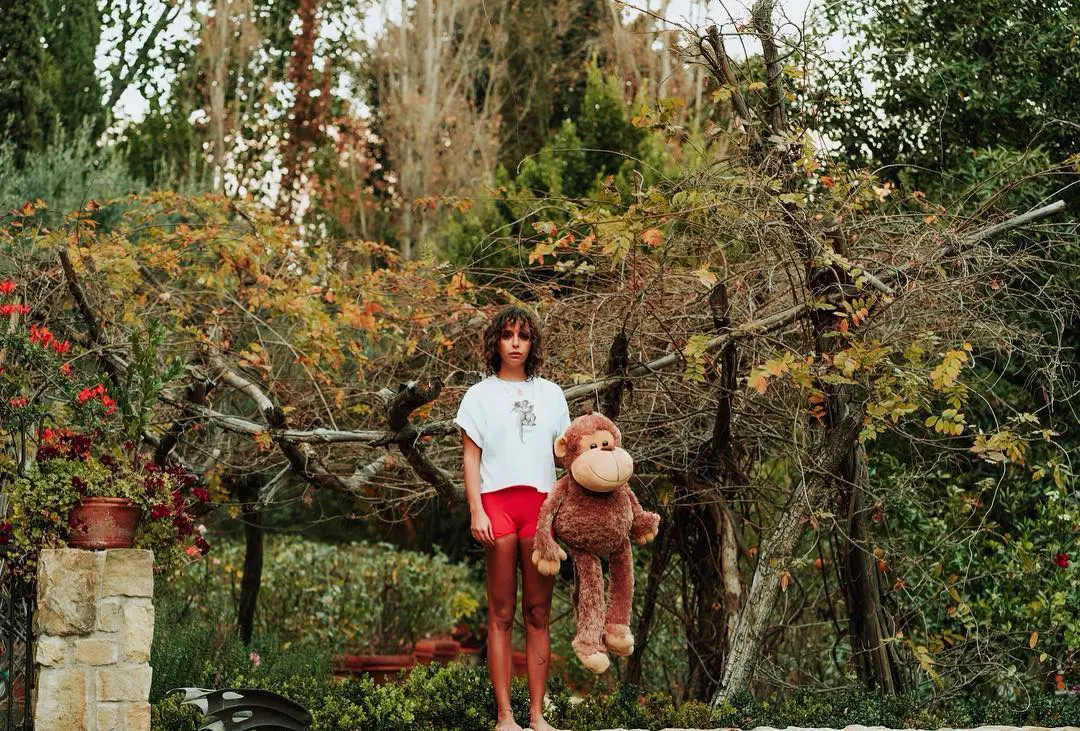
There’s something kind of political about merging these two countries together.
Rotana: Yeah. Like I told you, so many times journalists are like “You’re an activist, you’re political” and I’m like “No man, I’m just human” but I guess it’s inherent in that. My business is not in politics, I think that we’re fucked with politics, international politics has been the same since the beginning of time, so I’m not fighting that battle at all. I am in the business of humanity. I guess it just enters that, but I’m on a mission to make Saudi Arabia and the West, and really the whole world, have a human connection, because I believe the world doesn’t have a human connection to us, the people, right now. They have a very fearful, propaganda-based connection to us, and that’s bullshit, and that’s not just us, it’s other countries where the media is doing such a good job at keeping us afraid from each other and that’s just bullshit.
You’re so outspoken and talented and inspiring - you’re a musician, actress, and then you also talk about Saudi Arabia, and being a woman, and sexuality, and drugs, and you’re not scared of telling the world to go fuck themselves. And you talk about every single part of your experience very openly. What do you hope that your voice is going to be used the loudest for?
Rotana: I want my voice to be used the loudest for people to have conviction in their freedom of expression. I always come back to that, because I truly believe that if we felt safe to express ourselves in this world, we would have a lot less wars, shootings. If people felt safe to make their art, to laugh, to cry, to get naked, to masturbate, to do whatever it is that they wanted to do, if we were expressed as a human race I really think the world would be a better place, as corny as that sounds. That’s been the core of my struggle and I’m still working towards being a person that is freely expressed, that is expressed without anxiety, and I think that most of us are suppressed and are not expressed at all. I’m on that level where I’m expressed with anxiety because I’m so conditioned, but I want to get to that place where I’m just expressed. I’m just moving in a way that feels right to me, and I understand that when I do that, I couldn’t actually, possibly hurt anyone, and I can’t actually be wrong if I’m expressing myself in a pure way. I think that’s such a big concept that I still don’t fully grasp, but that’s what I’m working towards and that’s what I want to give people.
— —
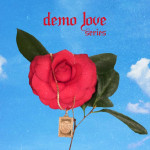
Connect with Rotana on
Facebook, Instagram, Twitter
Discover new music on Atwood Magazine
? © Topher Shrigley

